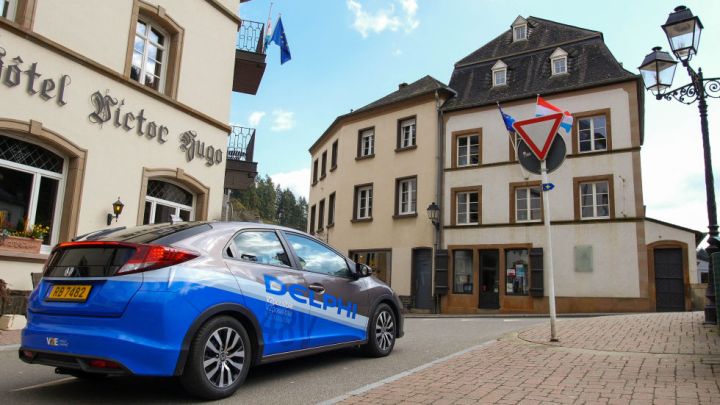
Mild hybrids aren’t a brand new solution. General Motors showed a mild hybrid concept car in 2000 and has introduced different versions since then. Also referred to as BAS or Belt-Assisted-Starters, GM offered mild hybrid options for a 2007 Saturn and then for Buick models starting in 2013. The 2016 Chevrolet Silverado and GMC Sierra full-sized pickups offer a mild hybrid system called “eAssist.” One reason for the “mild” is the electrical system in a mild hybrids has lower voltage. Fully electrical cars and hybrids such as the Prius use 60V electrical systems. Mild hybrids use 36V to 48V systems that run in parallel to a car’s conventional 12 volt system.
Mild hybrid, BAS, and eAssist systems, while not identical, have roughly the same effect. A small electrical boost in power is added to a conventional engine on startup and takeoff. The electrical power is regained or “regenerated” during braking. The electrical power isn’t enough to run the vehicle alone, but it adds enough extra power so the car or truck is able to accelerate faster without increasing fuel consumption or emissions.
The two great advantages of diesel engines have always been fuel economy and pulling power, the latter also known as torque. Those two factors are why diesel motors are preferred for large trucks that pull or carry heavy loads. The two downsides of diesels are slower acceleration and more emissions than gasoline engines. Turbochargers added to diesel engines have been the most common way to boost acceleration. Running cleaner, however, requires lots of emissions control technology and software. We know where that has led lately.
But what if you combined a small diesel engine with a turbocharger and added a 48V mild hybrid setup? That’s what Delphi is testing now in a Honda Civic with a 1.6 liter turbodiesel engine. The 48V mild hybrid system has a lithium ion battery that provides power on takeoff and is recharged while braking. According to Delphi’s testing, the average fuel economy with the mild hybrid system is 10 percent improved, with up to a 35-percent improvement at some engine speeds.
Adding a 48V mild hybrid system that runs in parallel to the vehicle’s conventional 12V system and is used just for its power additive capability is significantly less expensive for automotive manufacturers than creating an entire 60V system. A full 60V system needs not only larger batteries, but also a full suite of new components to power everything in the car or truck.
According to Delphi’s calculations, a mild hybrid system with a diesel engine can accomplish 70 percent of the added fuel economy and lessened emissions of a conventional hybrid at only 30 percent of the regular hybrid’s cost over a conventional petroleum-fueled engine. So, cheaper, faster, and cleaner. That sounds like a win all around, and could be a way out for automobile manufacturers required to meet strict demands for better fuel economy and reduced emissions.



